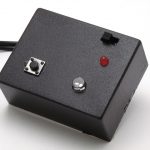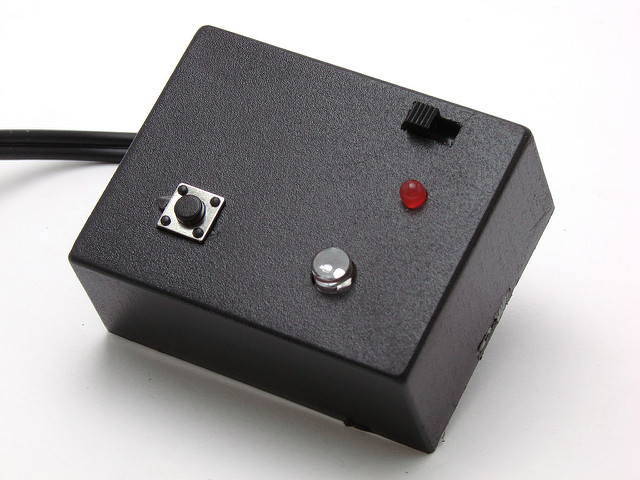
Image Credit: Luis Fernando Chavier
I want you to spend a moment thinking about the last time that you walked into a room in order to start a negotiation. Where was your head at? Did you look across the table and see reasonable people who were there trying to find a way to reach a deal with you? Or were you so focused on the fact that the EggMcMuffin that you had ordered this morning had somehow come with no egg and that you had then proceeded to spill coffee on yourself? We often think that we can separate being upset and all of the emotional triggers that come along with that from the negotiating task at hand, but can we?
The Impact Of Emotional Triggers
As a negotiator, we need to understand that the decisions that we make are always based to some extent on our feelings. What we need to do is to take the time to understand where our emotions are coming from and how they may impact our negotiation styles and negotiating techniques. If it is possible for us to identify the source of one of our emotional triggers, then we will be able to ensure that it becomes less likely to influence our negotiating decisions. If we can acknowledge the source of what is making us unhappy, then we’ll be able to defuse its impact on our decision making ability.
How To Defuse Emotional Triggers Before A Negotiation
Before a negotiation starts, you are going to want to find the time that you’ll need in order to take an inventory of how you are feeling. What you will be trying to do is to recognize and defuse your own incidental emotions. The best way to go about starting this process is by identifying your emotional triggers.
You need to understand that whatever your emotion triggers are, there is the very real possibility that they may be influencing the negotiations. It’s this influence that makes it so important to identify them. Awareness of this possibility will improve your odds of recognizing the effects of such triggers in the heat of the moment.
Defusing The Other Side’s Emotional Triggers
Just as we may show up for a negotiation with a set of emotional triggers, so too may the other side. As a negotiator we need to understand that just as our own emotional triggers may stand in the way of our being able to reach a deal with the other side, so too may their emotional triggers stand in the way of their ability to reach a deal with us. The first thing that you need to be aware of is that the emotion that the other side is feeling may have nothing to do with you.
The next thing that you are going to want to do is to take the time to detect that the other side is bringing their feelings to the negotiation. Once you’ve been able to establish this, you are going to want to help them to draw a connection to the source of these feelings. One way that you can go about doing this is by asking open-ended questions such as “Terrible weather outside, isn’t it?” or “How was the drive to get here?” Doing this can go a long way toward minimizing the influence of negative emotions on judgments and choices on the negotiation from their point of view.
What All Of This Means For You
When we show up for a principled negotiation, we are not arriving alone. All too often we have a tendency to bring our own set of emotional triggers along with us. What this ends up meaning is that we may not be able to reach an agreement with the other side of the table simply because we’ve got issues. We need to learn how to deal with our emotional triggers in a way that won’t impact our negotiation.
The first step in dealing with emotional triggers is to understand the impact that they can have on a negotiation. If we can take the time to understand where our triggers are coming from, then we’ll be better positioned to deal with them. Our goal should be to defuse emotional triggers before a negotiation starts. To do this we need to identify them and then be able to recognize them during a negotiation. If the other side shows up with their own emotional trigger issues then we need to provide them with help to defuse them if we want to have any hope of being able to reach a deal with them.
As negotiators we need to understand that we are complex creatures. We can bring outside influences into a negotiation and these can hinder our ability to reach a deal with the other side. Being aware that this is a potential problem for both side of the table and then taking steps to deal with it is how we’re going to be able to reach the agreements that we want in our next negotiation.
– Dr. Jim Anderson
Blue Elephant Consulting –
Your Source For Real World Negotiating Skills™
Question For You: Do you think that working with someone else would be the best way to discover what your emotional triggers are?
![]() Click here to get automatic updates when The Accidental Negotiator Blog is updated.
Click here to get automatic updates when The Accidental Negotiator Blog is updated.
P.S.: Free subscriptions to The Accidental Negotiator Newsletter are now available. Learn what you need to know to do the job. Subscribe now: Click Here!
What We’ll Be Talking About Next Time
So just exactly what is a crisis? Let us agree that at every firm the definition of what a crisis is can differ. I think that most of us could agree that a crisis is probably an unexpected event that everyone agrees represents a high-priority issue that needs to be solved. When a crisis occurs, most companies can shift swiftly and efficiently from day-to-day operations into crisis-management mode. In the world of negotiations, a crisis can involve a tumble in the company’s stock price, a building evacuation, or even a product recall. How can a negotiator use his or her negotiation styles and negotiating techniques to help his or her company get though a crisis effectively?

